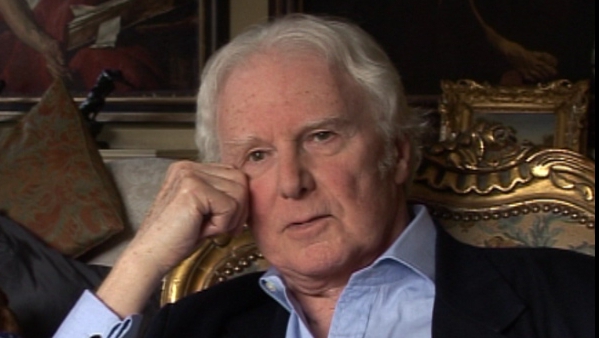NEXT STORY

Highly educated in all the wrong areas
RELATED STORIES

NEXT STORY

Highly educated in all the wrong areas
RELATED STORIES


|
Views | Duration | |
|---|---|---|---|
| 1. John Singer Sargent as a painter of the aristocracy | 1218 | 00:58 | |
| 2. The difference between a great painter and a good painter | 962 | 03:40 | |
| 3. Great monuments of the 20th century | 701 | 03:18 | |
| 4. The influence of World War I on John Singer Sargent's art | 481 | 01:12 | |
| 5. Is love a mental illness? | 2 | 634 | 02:10 |
| 6. Falling in love with a boy from the Hitler Youth | 1 | 705 | 04:12 |
| 7. My three parents | 544 | 01:39 | |
| 8. A 1930s child | 440 | 02:10 | |
| 9. Highly educated in all the wrong areas | 586 | 00:55 | |
| 10. An education provided by trips to museums | 437 | 02:02 |

We were, throughout the '30s, very poor, but then everybody in the '30s was poor. This was no way an exceptional thing. And I think it’s very difficult for people who are younger than me to realise just how difficult life was in the 1930s.
I was born in 1931. The consequences of the depression were already abundant, and they only got worse. For a woman with a child and no husband, things were exceedingly difficult. And in a way, the war made them easier. It’s curious, but you know, everybody was hungry during the war. There were shortages of everything. If your clothes were out at elbow, it didn’t matter, because everybody’s clothes were out at elbow during the war. But during the 1930s, the poverty… you still had leftovers so you didn’t necessarily look almost destitute.
So… no, it was tough. And I think my mother was quite valiant but I think when the war broke out and this nice, much older, man who had been wooing her in a sense for some years, just suddenly turned from being a decent sort with whom she occasionally went to the theatre and so on, into being somebody who offered security.
Born in England, Brian Sewell (1931-2015) was considered to be one of Britain’s most prominent and outspoken art critics. He was educated at the Courtauld Institute of Art and subsequently became an art critic for the London Evening Standard; he received numerous awards for his work in journalism. Sewell also presented several television documentaries, including an arts travelogue called The Naked Pilgrim in 2003. He talked candidly about the prejudice he endured because of his sexuality.
Title: A 1930s child
Listeners: Christopher Sykes
Christopher Sykes is an independent documentary producer who has made a number of films about science and scientists for BBC TV, Channel Four, and PBS.
Tags: Great Depression, World War II, Mary Jessica Perkins
Duration: 2 minutes, 10 seconds
Date story recorded: 2008
Date story went live: 28 June 2012